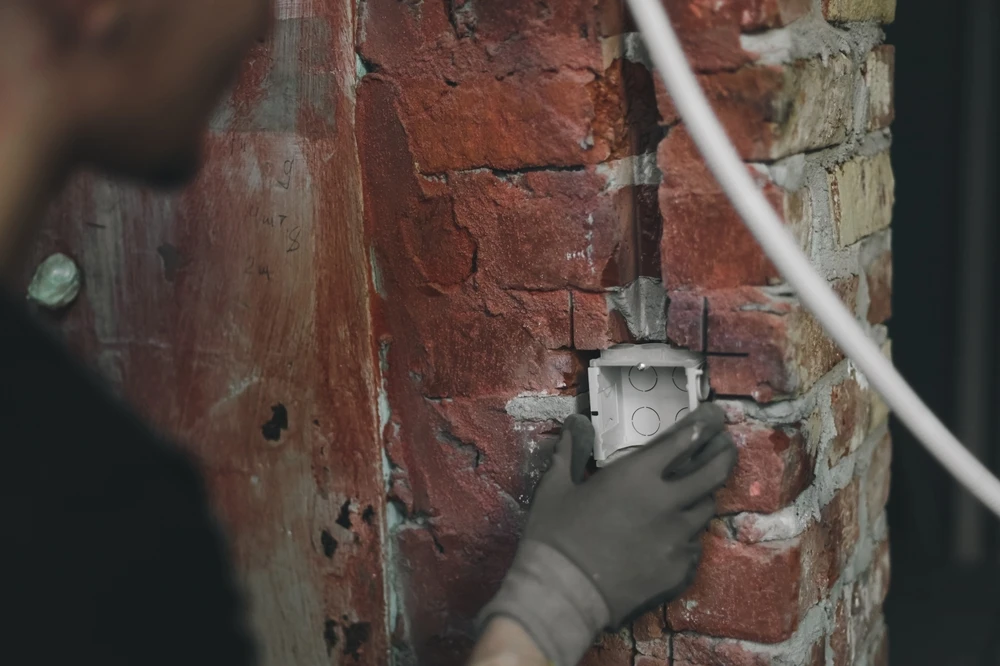
Older homes on the Central Coast often come with character and charm, but their electrical systems can hide risks that many homeowners do not notice until something goes wrong. Wiring, switchboards and components installed decades ago were never designed to handle today’s power demands, which means these systems can become stressed, unreliable or unsafe over time.
As an electrician in Central Coast, our team at Hudson Electrical works with homeowners to identify ageing parts, improve safety and prevent avoidable hazards. Understanding how older electrical systems deteriorate and recognising the early signs of trouble helps you make informed decisions about maintenance, upgrades and long-term protection for your home.
Many long-standing homes are fitted with wiring and components that were installed decades ago, which makes them more vulnerable to faults and failures. Over time materials can deteriorate, especially when exposed to coastal weather conditions and daily wear. Modern households use far more power than older systems were designed to handle, creating increased strain. All of these factors raise the risk of overheating and electrical fires if upgrades or repairs are not completed.
Ageing electrical systems were not built with things like home theatres and fast-charging devices in mind. As demand grows, wires can heat up more than they should and lead to damage behind walls. The added pressure on outlets and circuits increases the chance of tripping or complete failure.
Living near the ocean means constant exposure to salty air that speeds up metal deterioration. Moisture can find its way into switches and connections, making them less reliable over time. Corroded parts struggle to conduct power properly, which leads to electrical instability.
Electrical problems often start small and can be easy to overlook at first. Knowing what to look for helps you act before something becomes dangerous. Early signs can point to wiring weaknesses or overloaded circuits.
Enhancing an older electrical system not only improves performance but also protects your household against fire and shock hazards. Good planning ensures that upgrades provide lasting results while also preparing your home for future needs. Using modern technology and protective devices increases reliability and peace of mind. Professional installation ensures everything meets the latest safety standards.
Switchboards in older homes often rely on outdated protection methods that are not as effective as current solutions. Safety switches detect unsafe faults quickly and stop power before harm occurs. Upgrading creates a safer electrical foundation.
Coastal homes need extra protection against salt and humidity, which have a harsh effect on electrical components. Stronger materials help slow down deterioration. Long-lasting products offer better value and fewer repairs.
Routine inspections are one of the best ways to keep your home safe and compliant. Professionals can uncover issues that are not visible to the homeowner. These checks reveal the actual condition of the system.

Small actions from homeowners can greatly improve safety and reduce the chance of unexpected repairs. Creating a proactive plan keeps everything in good shape while easing long-term budgeting. Staying organised makes it easier to prove your home has been cared for if you ever decide to sell. Planning ahead is always more cost-effective than dealing with emergencies.
Timing matters when it comes to evaluating an older electrical system. A regular schedule helps you keep track of changes at home. Inspections identify risks early and provide expert advice.
Electrical improvements are an investment that protects your property and family. Planning makes costs easier to manage across stages. Upgrades can be tailored to suit your needs.
Good documentation shows that your home has been responsibly maintained. Buyers feel more confident when they see that the electrical system has been cared for. It may also support a better property valuation.
Old homes deserve the right level of care to keep them safe and enjoyable for many years to come. Regular attention to your electrical system prevents hazards that could easily be avoided. Investing in quality upgrades now provides reliability and peace of mind for the future.
If you want your home to remain a safe place for your family, Hudson Electrical is ready to help with inspections and professional advice. Taking action today means fewer problems tomorrow and a home that performs well under modern demands. Staying ahead of risks is always the smartest move when it comes to electrical safety.